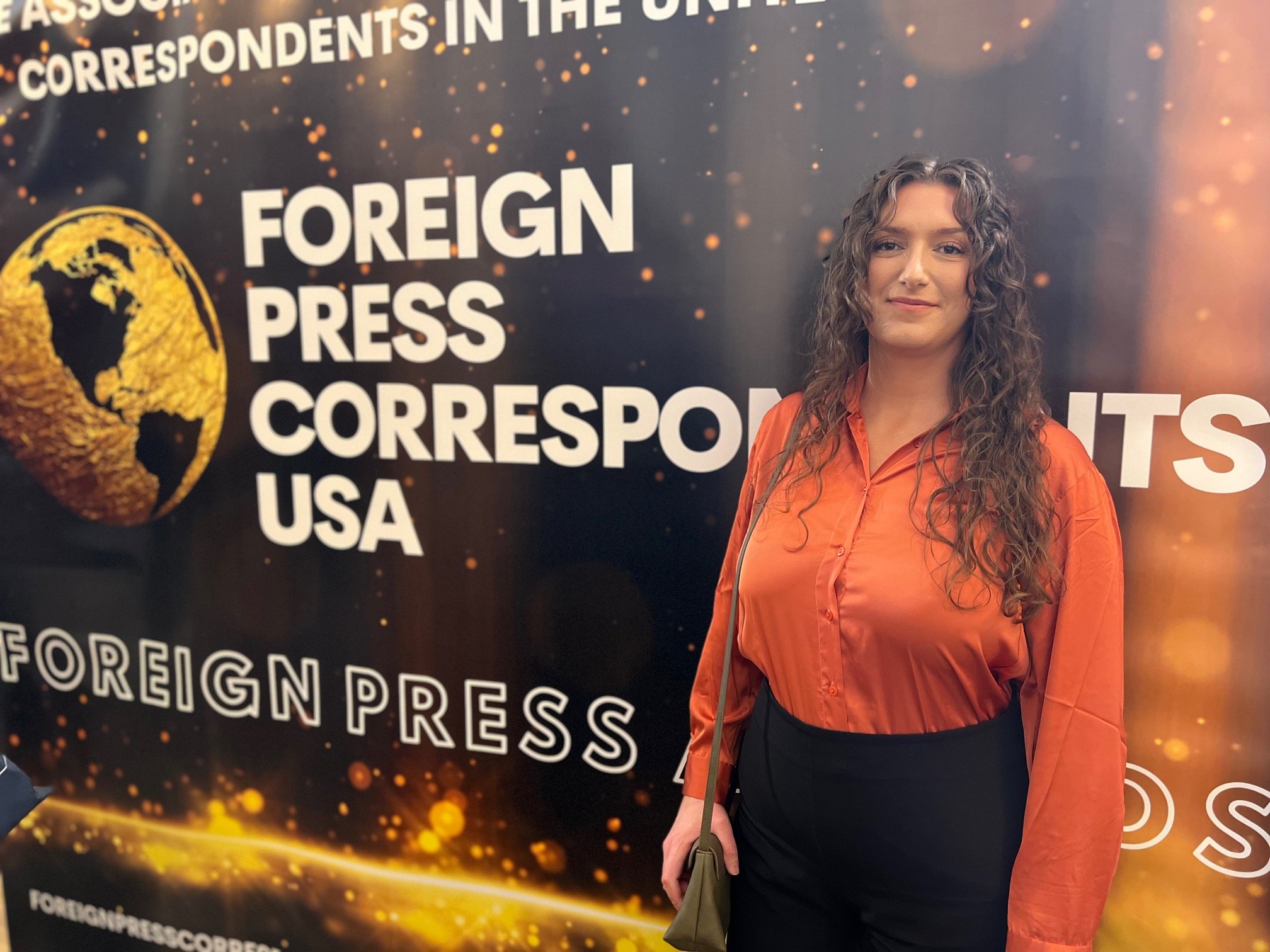"I am honored that the AFPC recognizes me as a journalist"

Anna Westerberg (Sweden) is an AFPC Scholarship Awardee for 2022.
Anna Westerberg is an AFPC Scholarship Awardee from the Association of Foreign Press Correspondents in the USA for 2022. She as practiced and studied journalism in three different countries: with an internship in Costa Rica, a Bachelor’s degree from City University of London, and as a radio broadcast journalist with public service in her home country Sweden. As a local editor at a newspaper in Northern Sweden – a vast, mostly rural area, where people feel sidelined, marginalized and forgotten by their government and the media – she came to see her role partly as shouldering the responsibility to restore the readers’ trust by continuously lifting the concerns crucial for their quality of life. She is now pursuing her M.S in journalism at Columbia University Graduate School of Journalism. She lives to tell stories about the societies we live in, the people we are and the symbiosis between us. Anna’s goal as a journalist is to fight disinformation and write stories that connect the divides in society.
What was the primary reason you chose to pursue your master's studies in the United States as a foreign journalist?
The primary reason for learning journalism in the United States was the strong tradition of mass media here and the presence of big media institutions. A journalist’s job is to check those in power and to check where the public funds go. In the biggest economy in the world, this task is crucial, so learning how journalism is practiced in the United States is going to be invaluable.
Anna Westerberg from Sweden received her award from Cameron Batten, Senior Vice President and Chief Communications Officer, Volkswagen Group of America, during the Annual Foreign Press Awards Ceremony on December 15, 2022, in New York.
You were recently awarded a scholarship from the Association of Foreign Press Correspondents in the United States. How did you feel about this recognition?
I’m extremely honored that an organization such as the Association of Foreign Press Correspondents recognizes me as a journalist. It truly spurs me on and makes me even more determined to reach my goals.
As a journalist, how do you expect your studies and the support from the Association of Foreign Press Correspondents in the United States to help you advance your career?
I believe my studies and the scholarship will be crucial in becoming the journalist I want to be. Learning the profession's tools from some of the best in the field, with the invaluable help of the Association of Foreign Press Correspondents, will elevate my career to more far-reaching and global platforms.
What made you decide to become a journalist? How do you hope to make an impact in the journalism field of your country of origin?
Journalism is all I have ever wanted to do. I want to tell stories about our societies and give marginalized people a voice. As a journalist, I feel a huge sense of responsibility which makes me proud of my chosen profession.
In my country, the far-right has grown into the second-biggest political party. They are outspoken deniers of climate change, opposing immigration and LGBTQ-rights. The far-right could grow in the dark for a long time as the mass media and the established political parties did not check or debate with them. In Sweden, journalists are protected by constitutional law, and I don’t want us to become complacent. Nuanced news and fact-checking are more important than ever to win back the readership's trust.
As a foreign journalist, what defines your mission?
I believe foreign journalists can offer a fresh pair of eyes. Not saying that it makes us unbiased, but foreign journalists are needed to shed light from new angles. My curiosity drives me to practice journalism in different countries. For me, journalism is a way to discover the world. Regardless of where I practice journalism, my mission will always be to seek the truth, give people a voice, and hold those in power accountable.
What do you think is the greatest threat to journalism today?
The constant flow of information and the impossible task of the audience to choose which information to trust. The sense of urgency and competition between outlets to be first, the decreasing revenue, and the limited time to fact-check reliable sources increase the risk of mistakes and the gap between journalists and their audience. This has hit established providers such as Reuters, AP, and the New York Times, as well as outlets with even more limited resources. I also believe the sheer volume of news and information creates news-fatigue and compassion fatigue, as happened with news on Brexit, the war in Syria, and climate change.
What is the state of press freedom in your country of origin, and how do you hope your work will encourage more people to access independent and credible information?
One of the cornerstones of Swedish constitutional law is press freedom; it includes public access to information and was the first of its kind in the world. The press is self-regulated by the Swedish Media Council, also the first of its kind in the world. This means journalists traditionally are very protected in Sweden and could lead to complacency and maybe even carelessness in some cases. It is important to remember that our responsibility is to our audience, who are also our lifeline. One of my biggest tasks as a journalist is to help restore the public’s trust. I will try to do that by guaranteeing independent and credible information at a time when independent fact-checking is a luxury for many media organizations. I will also listen to the audience and highlight the issues closest to people’s hearts. By shouldering the responsibility to be a journalist and keep self-regulating with in-news room discussions with colleagues and editors, I hope to play my part in encouraging the readers to come back.

